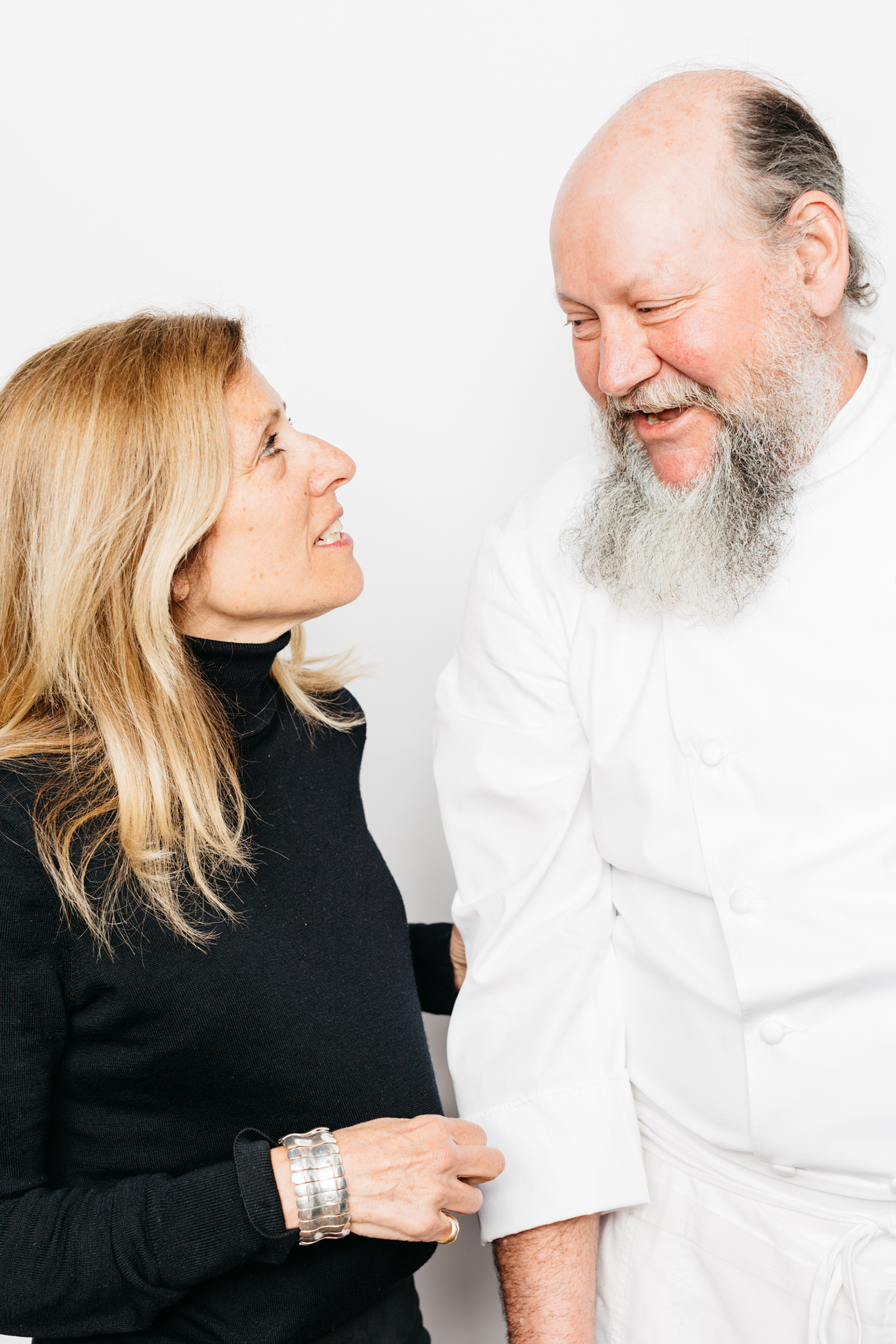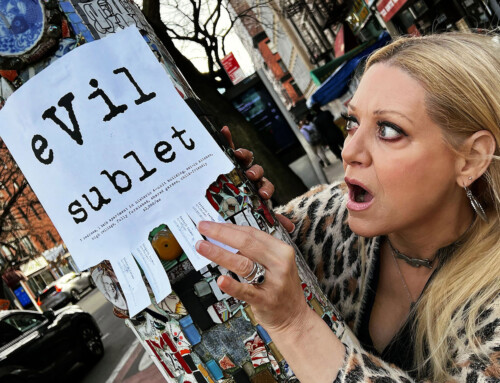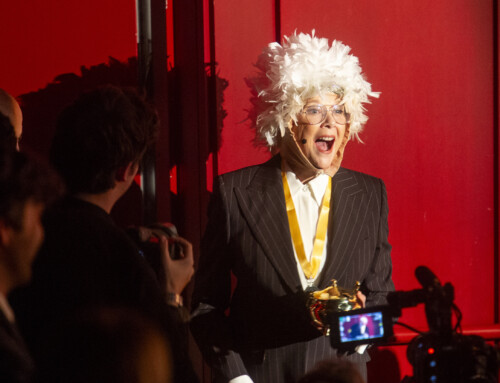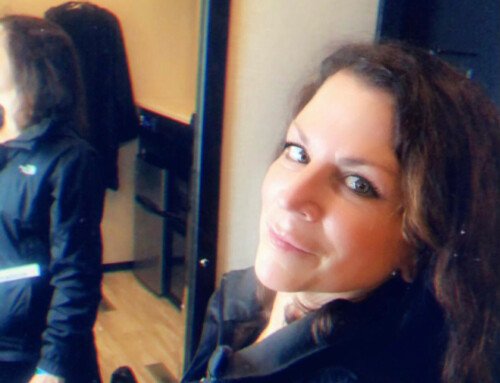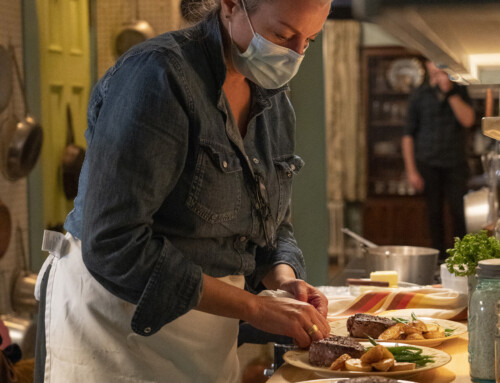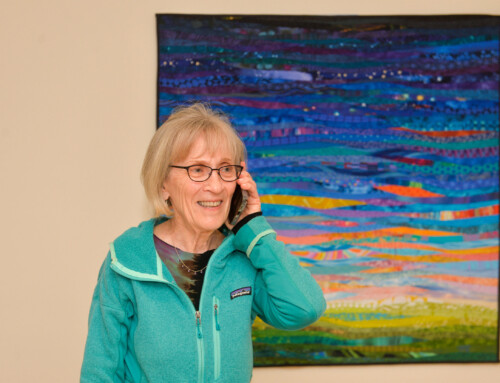It was 7:30 in the morning when we met Peter Davis in his kitchen at Henrietta’s Table. Despite the early hour Davis’ staff was already setting up the lunch menu, yet it was scent of breakfast that I followed as he led me through the massive kitchen of one of Harvard Square’s most revered restaurants.
Having lost my sight 18 years ago, I’ve found it replaced with heightened senses of smell, taste and touch—qualities Davis appreciated as he let his story unfold.
Located at the Charles Hotel, Henrietta’s Table seemed an unlikely place for a culinary movement that not only broke new ground, but breathed life back into the small-scale farm. A New England native, Davis is the local chef most associated with the farm-to-table concept, something that is as natural as the food he prepares.
Thanks to his values and the 23 years he’s served Henrietta’s Table, local bounty has found its way into restaurants up and down the coast. This is not a passing fad, he insists: “Today people want to know where their food comes from.”
Fortunately, Davis isn’t territorial about his farm-to-table values, but generously extends his expertise and even his time. Without my sight to fill in the details, Davis gracefully maneuvered me past kitchen work stations that emitted a steady hum of activity, explaining the details without disrupting the rhythm.
“Everyone works hard,” he said of his staff. “We do our best to accommodate our customers’ needs.”
Today those “needs” reach beyond favorite dishes and now include the hidden world of food allergies. Davis notes that the increase in food allergies has become a challenge in the food service business, yet it has made him acutely aware of every ingredient that goes into the 700 to 900 meals he serves each day.
Davis, who works six or seven days a week, said he sees the challenge not in the long days, but in finding others who want to do the same.
“The three hardest jobs a person can do are farmer, fisherman and chef,” he said. “But, yes, I love what I do ….”
Davis shared with us how his mother’s simple fare may be what sparked a food movement that has made its way around the world and why being a chef is one of the three hardest jobs you can do.
EDIBLE BOSTON: What is your first childhood memory that relates to food? Did it involve a holiday? A special dish made by a family member?
PD: Growing vegetables and having chickens in our backyard in Nahant. Our chickens never produced eggs like our neighbors’, but the garden always did well. As far as cooking goes, it was baking with my mother, mainly during holidays, but plenty of other times as well. She used her mother’s recipes for her holiday cookies and my sisters use them to this day.
EB: Has this memory influenced any choices you’ve made in your career?
PD: Yes, it definitely led me into pursuing cooking. My mother was a stay-at-home mom and made almost everything from scratch. We were a family of six children and ate together at 6pm daily. Her food was nothing extravagant, just simple, well-done food. I like to think Henrietta’s serves simple, well-done food …
EB: What inspired you to become a chef?
PD: I enjoyed cooking from childhood. In eighth grade, there was a technical school that offered a four-year high school culinary program. I wanted to go but my parents thought I would be better off in a regular high school. So I went to St. Mary’s of Lynn. While going through St. Mary’s, I ran a pizza kitchen in Tony Conigliaro’s clubhouse in Nahant at the golf course. Upon graduation, I left for the Culinary Institute of America and did the two-year program in one year and three months, completing my required work-internship hours after my classroom work was finished.
EB: You have spent 23 years at the helm of a restaurant of your own vision—Henrietta’s Table. What have you learned from your customers?
PD: To listen to them and teach them.
I have learned a lot from the farmers I work with and chefs in the community and beyond on food: how it’s grown, utilizing the entire plant, fish or animal and realizing how important food is to health and well-being. Customers want to know more and more about what they are consuming and as a chef it’s our job to help educate them.
EB: What is the most-ordered item on the menu? Why that particular item? What is your favorite?
PD: Our overall most popular item is the spinach salad. I think it sells well because it works well together with the sweetness, spiciness and tart fruit we change seasonally. I don’t really have a year-round favorite but I’ll put our pot roast up against anyone’s.
EB: If you could start over, would you do anything differently?
PD: I really like our concept. I would most likely streamline the menu, offer less, but try even harder to support local, sustainable food. It’s hard doing it for three-meal periods in a hotel setting.
EB: What advice would you give someone just starting out?
PD: Get ready to run. Being a chef is not easy on the mind or body. It takes a lot more than being a great culinarian.
EB: What has been the biggest challenge you’ve faced in your career? What has been the most rewarding?
PD: The biggest challenge is maintaining the standards we set and improving them to keep up with the ever-growing competition. Staying motivated and focused and driving every day to put out the best dining experience we can for each and every guest.
The most rewarding [moment] was having Julia Child say in an on-flight magazine interview that we were her “go-to comfort dining restaurant”.
The other most rewarding moment was when a young farmer named Matt Linehan [of Sparrow Arc Farm] came up to me one morning while making a delivery and gave me a huge hug. He told me that because of the support of Henrietta’s he was able to purchase his first 20 acres of land to own his own farm rather than having to lease.
Biggest honors? Receiving the distinction of Steward of the Earth from the Massachusetts Society for Promoting Agriculture for the work I have done supporting [Massachusetts] farmers and winning the Sustainable Chef of the Year from Chef’s Collaborative.
EB: You carry the labels conservationist and locavore. Which ranks first? How do the two relate within the restaurant business and do you feel you have been an “influencer?” If so, how?
PD: I think conservationist ranks first. To be a true locavore you have to know about the food you prepare and eat. I believe the more I educate the public on food the better the world can become.
EB: You are also closely tied to the phrase “farm to table.” In fact, you were at the heart of the movement here in Boston. How do these values define Henrietta’s Table?
PD: It’s what I strive to do daily and believe in. [The restaurant’s] owners and the hotel management have been very supportive of this belief and it’s not always the cheapest way to run the business.
EB: As a trailblazer in this area, what changes have you seen in what other local restaurants serve?
PD: There is so much competition now it’s crazy. Product is much easier to procure and the quality, quantity and availability has greatly increased. When we started, there were very few choices for producing locally grown product, especially on the protein side.
EB: What about the growing demand placed on small farmers and local seafood suppliers? Is this a good thing or does it dilute the mission?
PD: The demand is good as long as we—the chefs—educate the public in buying and supporting local and the reason it may cost a little more, whether it’s produce, fish or proteins.
EB: Climate change has turned our “seasons” on their head. Cooler summers, warmer autumns … Has this had an impact on your “seasonal menu?”
PD: Climate change—as well as advanced farming techniques—has greatly changed our menus. When I started everything basically shut down in October. Now we get farm product year-round.
Take us into your home. Who does the cooking? If we opened your refrigerator what would we find?
PD: I don’t eat a lot at home. My kids have grown up and moved on and I’m not home a lot. I always have locally grown vegetables, proteins, eggs and homemade pickles, sauces and stocks to work with.
EB: Do you envision your children taking over the business?
PD: My son has his doctorate in aeronautical engineering and my daughter is presently enrolled in her doctorate at Columbia in political science. They both worked at Henrietta’s in high school and college, and have no interest in going back to the restaurant field.
EB: What was the last book you read?
PD: Cod [Cod: A Biography of the Fish that Changed the World by Mark Kurlansky]
EB: Where do you see yourself in 10 years?
PD: Retired, consulting, skiing, sailing and fishing …
EB: Because I am blind I always ask this question: How would you describe yourself?
PD: Crazy hardworking … [Davis later described himself as bald on top with a full beard. When a broken leg made standing to shave difficult, he stopped shaving. He soon realized not shaving saved him 15 minutes each morning and thought it was great because it got him to work 15 minutes earlier!]
Nina Livingstone
Nina Livingstone is a Boston-based writer who, after losing her sight and most of her hearing, has learned to rely on her sense of smell, taste and touch when writing about food and the people who create it. Her only true addiction is tomatoes and finds a reason to have one every day. You can see other examples of her work at destinationmirth.com. She can be reached at nina@ninalivingstone.com.
This piece was originally published in Edible Boston Magazine, Summer 2018.


